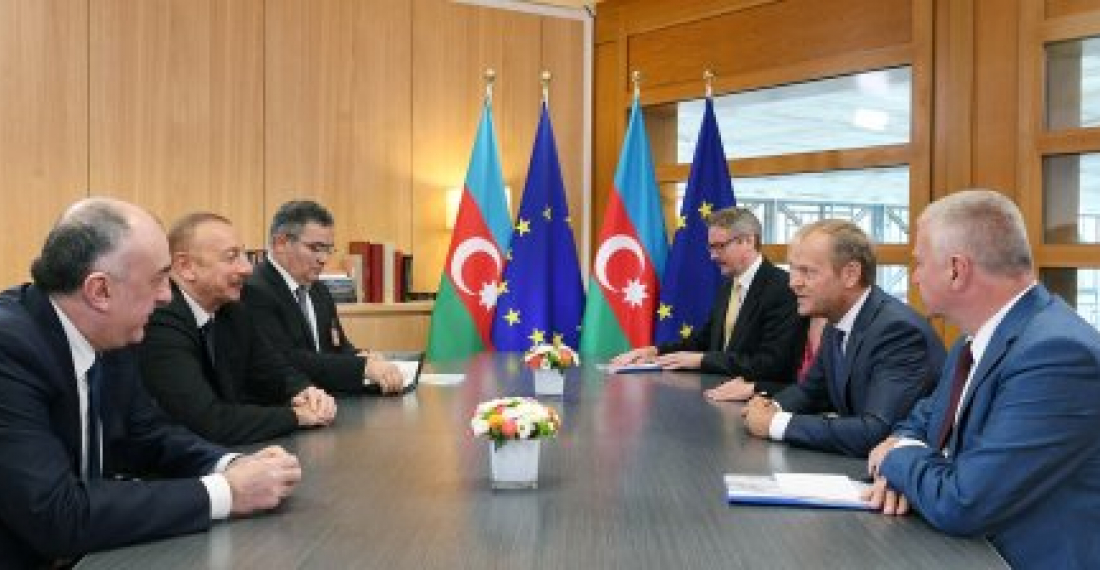Azerbaijani President Ilham Aliyev has held talks with senior leaders of the European Union in Brussels. On Wednesday (11 July) Aliyev met with the President of the European Council, Donald Tusk.
Later, President Aliyev and President Tusk were present for the conclusion of negotiations of the EU-Azerbaijan Partnership Priorities by the High Representative of the European Union for Foreign Affairs and Security Policy/Vice-President of the European Commission, Federica Mogherini and the Minister of Foreign Affairs of Azerbaijan, Elmar Mammadyarov.
A statement by the European External Action Service said that the Partnership Priorities represent an important step forward in EU-Azerbaijan relations, given that they set the joint policy priorities that will guide and enhance the partnership over the coming years. While also staying true to the principle of differentiation in the EU's relations with the countries in its eastern neighbourhood, the four main areas of cooperation under the Partnership Priorities reflect those identified under the Eastern Partnership framework, namely:
- Strengthening institutions and good governance; This includes the fight against corruption, public administration reform and capacity building for combating crime and terrorism;
- Economic development and market opportunities; This includes the sustainable diversification of the economy, support for WTO membership, and improving the business and investment environments;
- Connectivity, energy efficiency, environment and climate action; Building on the successful cooperation on energy connectivity and significant progress made on the Southern Gas Corridor, this includes support for Azerbaijan's ability to operate as a trade, logistics and transport hub, regulatory assistance, sustainable management of resources;
- Mobility and people-to-people contacts; This includes support to education and human capital, and providing more opportunities for EU and Azerbaijani citizens to meet and to share experiences.
"The Partnership Priorities will also provide the policy framework for our financial cooperation for 2018-2020, the statement said. "Through the Partnership Priorities, the EU and Azerbaijan renew their commitment to an ambitious and comprehensive agenda. The agenda will reflect the values and principles of the European Neighbourhood Policy, including respect for human rights, democracy, the rule of law, and dialogue with civil society. Together with the ongoing negotiations for a new bilateral agreement, the conclusion of the Partnership Priorities signals a clear intention to enhance the EU-Azerbaijan relationship so as to bring positive results for the benefit of the people of Azerbaijan and the European Union. The Partnership Priorities will now be formally approved by the European Union and Azerbaijan and then adopted."
source: commonspace.eu with the press service of the European External Action Service
photo: President Aliyev of Azerbaijan met the President of the European Council, Donald Tusk in Brussels on 11 July 2018 (picture courtesy of the press service of the President of Azerbaijan).







